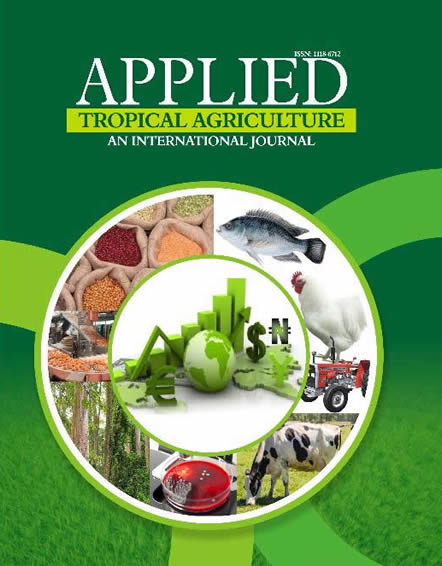Understanding how food consumers in Nigeria change their food consumption when prices change is not enough without
the attendant welfare implications, given that consumers have different cultural backgrounds, socio-economic status,
lifestyles, different behaviours and needs. This study assessed the impact of food prices on the welfare of rural households
in south-eastern Nigeria. Specifically, the study estimated a complete demand function for commonly consumed food items,
estimated the compensated price and income elasticities of demand, and examined the change in welfare of rural household
consumers with respect to change in prices of commodities in the study area. A three-stage stratified sampling procedure
was used to obtain 682 rural household food consumers. Data collected were analyzed using the Linear Expenditure
System (LES) of the point-wise separable Stone-Geary utility function. The results showed that all food commodities are
normal, non-Giffen, own-price inelastic and gross complements with weak substitutability, and a corresponding loss in
welfare as measured by the compensation variation (CV) and equivalent variation (EV). A counterfactual 10% increase in
the price of commodities in the region would lead to welfare loss of between 9.56% and 14.13% of initial food expenditure.
Increase in price of food commodities impacts on the subsistence level of household food consumers, particularly on their
welfare, in South-eastern Nigeria. Policies should be targeted at reducing such welfare impact and the attendant
consequences on households, particularly the low-income earners.
Key words: price, food, elasticity, welfare, consumer
PAPER TITLE :IMPACT OF FOOD PRICES ON THE WELFARE OF RURAL HOUSEHOLDS IN SOUTH- EASTERN NIGERIA
APPLIED TROPICAL AGRICULTURE | VOLUME 22 NUMBER 1 2017
Paper Details
- Author(s) : Ojogho, O. and Ojo, M.P.
- Abstract:


